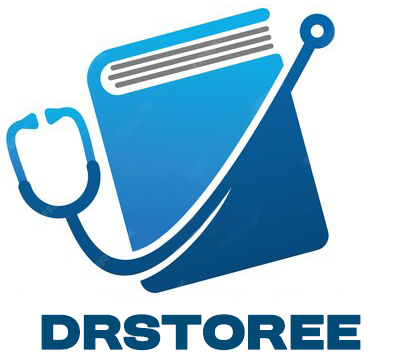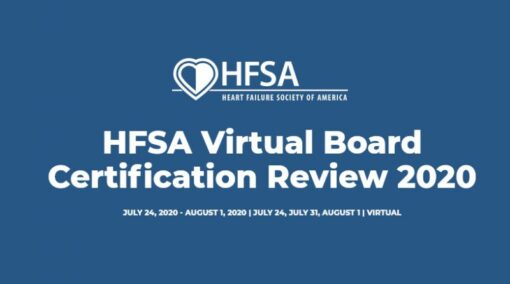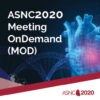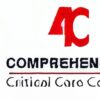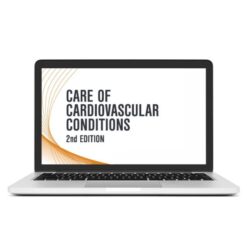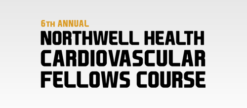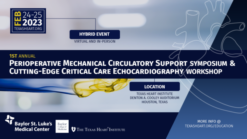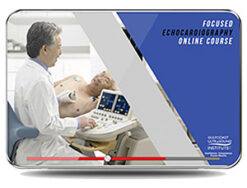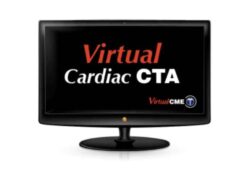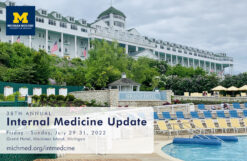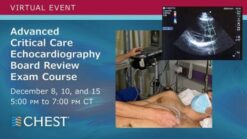HFSA Virtual Board Certification Review 2020
$50.00
This Product is shared via google drive download link, So please share your correct Gmail id while placing the order .Please note that there are no CME points or certificate associated with this course Samples for Courses Can be found here : Free Samples Here!
HFSA Virtual Board Certification Review 2020
General Meeting Information
The HFSA Virtual Board Certification Review 2020 will be comprised of renowned heart failure experts presenting curriculum that has been tailored to the actual ABIM examination.
Intended Audience
The HFSA Virtual Board Certification Review 2020 is designed for physicians who are preparing to take the ABIM Advanced Heart Failure & Transplant Cardiology Board Certification Exam.
Learning Objectives
Upon completion of the activity, participants will demonstrate improved competence and ability to:
For the Certification Examination in Advanced Heart Failure and Transplant Cardiology:
- Identify gaps in knowledge about advanced heart failure and transplant cardiology
- Focus study efforts on filling identified knowledge gaps
- Practice for the certification examination with ABIM-style multiple-choice test question
- -Describe the epidemiology of heart failure, including environmental factors, and implement strategies for the prevention of heart failure
- -Describe the pathophysiology of heart failure, including normal physiology and compensatory and maladaptive mechanisms
- -Assess and follow the patient with acute or advanced heart failure, using non-invasive and invasive tests and biomarkers.
- -Implement guideline-based therapy for patients with chronic heart failure, including pharmacologic agents; non-pharmacologic options, such as diet and exercise; and implantable devices
- -Implement appropriate care strategies for patients undergoing chemotherapy or with pulmonary hypertension, heart failure with preserved ejection fraction, or cardiorenal syndrome.
- -Manage comorbidities in patients with chronic heart failure, including sleep disordered breathing, anemia, and depression
- -Implement strategies for effective disease management of the patient with advanced heart failure, including palliative care and transition to outpatient care
- -Provide peri-operative management of heart failure patients undergoing cardiac transplantation or implantation of a mechanical circulatory device
- -Concise presentations by national experts will focus on blueprint content and will be augmented by board-review type questions posed using an audience-response system.
Topics ;
Pre-Course
- 01 Heart Failure Epidemiology and Risk Factors
- 02 Pathophysiology I – Cellular and Energetic Considerations
- 03 Pathophysiology II – Hemodynamic, Structural, and Neurohormonal Considerations
- 04 Diagnosis and Clinical Assessment
- 05 Device Therapy in Heart Failure
- 06 Cardio-Oncology for the HF Boards
- 07 Clinico-Pathologic Correlates in Heart Failure_ Images for the Heart Failure Boards
Day 1
- 01 Welcome _ HFSA Introduction – Day 1
- 02 Advanced Heart Failure – Defining the Phenotype and Patient Selection for Advanced Therapies
- 03 Immunology – The Basics, PRA, Sensitization, Crossmatch
- 04 Rejection – Cellular and Antibody Mediated
- 05 Managing Immunosuppression and Drugs
- 06 Heart Transplant, Clinical Outcomes and Complications
Day 2
- Welcome _ Introductions – Day 2
- 01 Hemodynamics in HF I
- 02 Hemodynamics in HF II
- 03 Drug Therapy for Chronic HF I – Focus on Established Therapies
- 04 Drug Therapy for Chronic HF II – Focus on Newer Therapies
- 05 HFpEF – Epidemiology, Risk Factors, Diagnosis, Management (for the boards)
- 06 Management of the Hospitalized HF Patient
- 07 Management of Common Arrhythmias in HF (including AF)
- 08 Management of Comorbidities in Heart Failure
- 09 Specific Etiologies of HF I – Common Etiologies (CAD, ETOH, Peripartum, Myocarditis)
- 10 Specific Etiologies of HF II – Inherited HF Syndromes (including HCM, ARVC, and LVNC)
- 11 Specific Etiologies of HF III – Infiltrative Disorders and Restrictive Cardiomyopathy (Amyloidosis, Sarcoidosis, Hemochromatosis, Fabry)
- 12 Adult Congenital Heart Disease for the HF Specialist
- 13 Q_A Panel I
Day 3
- Welcome _ Introductions – Day 3
- 01 Cardiogenic Shock Management
- 02 MCS I – Durable MCS Devices and Outcomes
- 03 MCS II – Temporary Support Devices and ECMO for the Boards
- 04 MCS III – MCS Complications and Patient Management
- 05 MCS IV – Troubleshooting (with HARVI)
- 06 Assessment of Functional Capacity Including Cardiopulmonary Exercise Testing
- 07 Issues in Chronic HF Disease Management (Biomarkers, Remote Monitoring, Lifestyle Interventions)
- 08 Management of Valvular Heart Disease in Heart Failure (including functional MR, low gradient AS, tricuspid regurgitation)
- 09 Pulmonary Hypertension
- 10 Q_A Panel II
Release Date : August 2020
Related products
$20.00
Cardiology
$35.00
Cardiology
$49.00
Cardiology
$60.00
Internal Medicine
$40.00
$55.00
